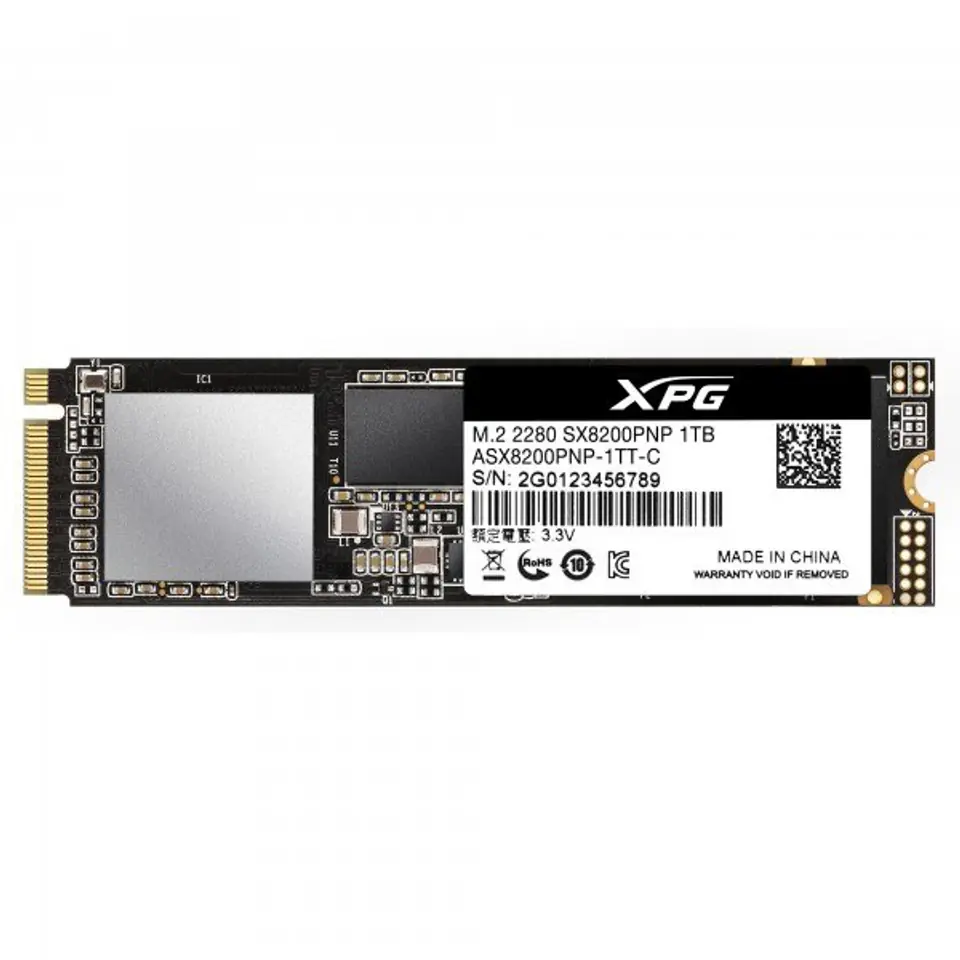SSD SX8200 Pro M.2 2280 is currently the fastest XPD SSD, designed for PC enthusiasts and avid gamers and overclockers. It is equipped with a very fast PCIe Gen3x4 interface, providing up to a maximum read / write speed of 3500/3000 MB per second, leaving the SATA 6 Gb / s drive capacity far behind. Thanks to NVMe 1.3 support, the SX8200 Pro drive provides excellent random read / write performance and multitasking. SLC cache memory, DRAM buffer, E2E data protection and LDPC ECC technology provide high speed and data integrity even for very demanding applications such as game rendering and overclocking.
XPG SX8200 Pro M.2 1000 GB PCI Express 3.0 3D TLC NVMe









€70.45
Shipping from warehouse: H7
Estimated shipping: Mon, Mar 31 - Thu, Apr 3
14 days returnUnconditional return policy
Specification
| Component for: | PC/Laptop |
|---|---|
| Depth: | 22 mm |
| Ecc: | Yes |
| End-to-end data protection: | Yes |
| Harmonized system (hs) code: | 84717070 |
| Height: | 3.5 mm |
| Interface: | PCI Express 3.0 |
| Low-density parity-check (ldpc): | Yes |
| Mean time between failures (mtbf): | 2000000 h |
| Memory type: | 3D TLC |
| Nand flash type: | TLC (Triple Level Cell) |
| Nvme: | Yes |
| Nvme version: | 1.3 |
| Operating relative humidity (h-h): | 5 - 95% |
| Operating shock: | 1500 G |
| Operating temperature (t-t): | 0 - 70 °C |
| Pci express interface data lanes: | x4 |
| Product colour: | Black |
| Random read (4kb): | 390000 IOPS |
| Random write (4kb): | 380000 IOPS |
| Read speed: | 3500 MB/s |
| Sequential read speed (as ssd): | 3000 MB/s |
| Sequential read speed (atto): | 3350 MB/s |
| Sequential read speed (cdm): | 3500 MB/s |
| Sequential write speed (as ssd): | 2500 MB/s |
| Sequential write speed (atto): | 2800 MB/s |
| Sequential write speed (cdm): | 3000 MB/s |
| Ssd capacity: | 1 TB |
| Ssd form factor: | M.2 |
| Storage temperature (t-t): | -40 - 85 °C |
| Sustainability certificates: | RoHS |
| Weight: | 8 g |
| Width: | 80 mm |
| Write speed: | 3000 MB/s |
Despite our best efforts, we cannot guarantee that the published technical data and photos do not contain inaccuracies or errors, which, however, cannot be a basis for claims.









